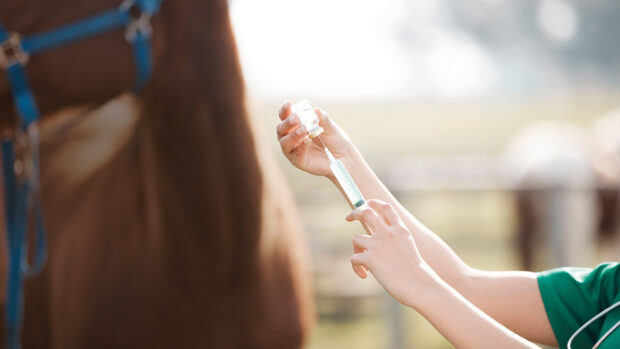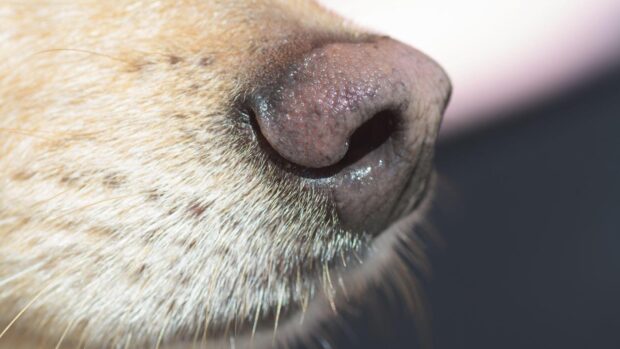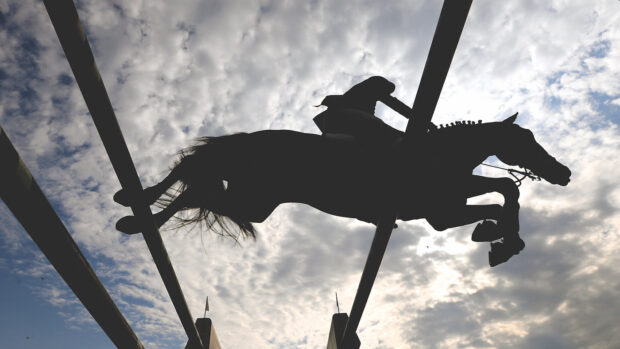A hair regrowth product was to blame for two racehorses failing drug tests, the British Horseracing Authority’s (BHA) disciplinary panel has heard.
Outrath and Ertidaad, both trained by Susannah Best, tested positive for the prohibited substance minoxidil at Kempton last year on 19 and 21 February respectively.
The drug is licensed in the UK for use in humans and is used in products to stimulate hair growth.
There are no veterinary medicines that contain minoxidil and it is not licensed for use in animals in the UK.
The substance was also involved in a FEI tribunal in 2017, where an owner’s hair tonic was blamed for causing a positive test in a showjumper two years previously.
Mrs Best did not attend the BHA disciplinary panel inquiry on 17 January and was not represented.
In a written submission ahead of the hearing, she admitted the rule breaches.
“As the horses were under my care and control and as the licensed trainer I take full responsibility, even though I had no reason to believe this could happen,” she said.
A team from the BHA visited Mrs Best’s yard following the positive tests to investigate, where they checked medical records, the medical cabinet and an inventory of all feed and supplements. They also took blood and urine samples from eight horses, including Outrath and Ertidaad, and interviewed Mrs Best and her assistant trainer, her brother-in-law Tom Best.
They found that no medication was stored on site, none of the feed or supplements contained the drug, none of the blood or urine samples taken tested positive and there was no record of anything being given to horses that might contain minoxidil.
They also found that Mrs Best did not go to Kempton on 19 or 21 February 2018, rather it was Mr Best who went and saddled the horses.
“Tom Best was and had been for some years a regular user of Rogaine [also known as Regaine, which contains minoxidil], applying the substance daily, usually but not always in the morning, to his scalp with his hands.,” stated the tribunal.
“He did not wear gloves but claimed he always washed his hands afterwards.
“Tom Best rode Outrath most days and was his regular groom. He occasionally rode Ertidaad and groomed the horse as well.
“Mrs Best knew that Tom Best was an habitual user of Rogaine but did not know Rogaine contained minoxidil or that that was a substance which could result in a positive sample.”
The panel agreed contamination from Mr Best was “the most likely explanation”.
The statement from the panel added she knew he was using the product and assumed it was harmless and posed no risk if unwittingly ingested by a horse.
“The label on the bottle expressly states that the product contains minoxidil which may not convey much to a layperson not a pharmacologist, but would surely have prompted a wary trainer to enquire as to the purpose and effect of that substance,” added the statement.
“Further, the instructions on the label indicate the potential toxicity of Rogaine with chest pain, rapid heartbeat and dizziness possible side-effects, a warning that if swallowed medical help should be obtained or a poison control centre should be contacted straight away, and emphasis on the need for the user to wash his hands after application.
“But Mrs Best never inspected or asked to inspect a Rogaine bottle or made any enquiries about the product. Had she done so she is likely to have reacted as she has said she will do now, in effect prohibiting the use of Rogaine by any of her staff in contact with horses, or at the very least issuing express instructions that Rogaine must only be applied using some form of gloves.
“Accordingly we are unable to find that Mrs Best has taken all reasonable precautions and is thus subject to a penalty.”
Mrs Best was fined £2,000 in total (£1,000 per horse) and both horses were disqualified from the respective races.
For all the latest news analysis, competition reports, interviews, features and much more, don’t miss Horse & Hound magazine, on sale every Thursday




